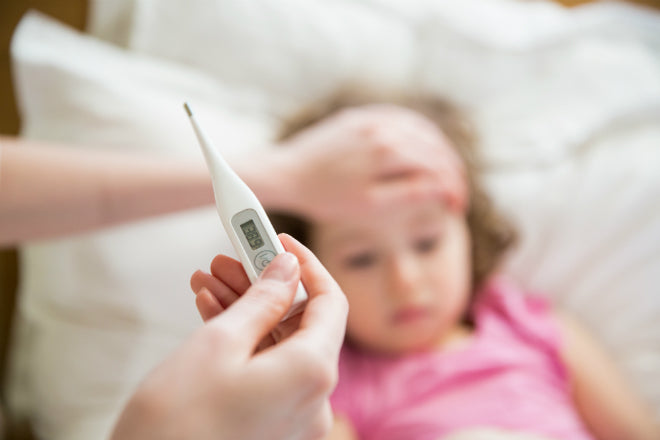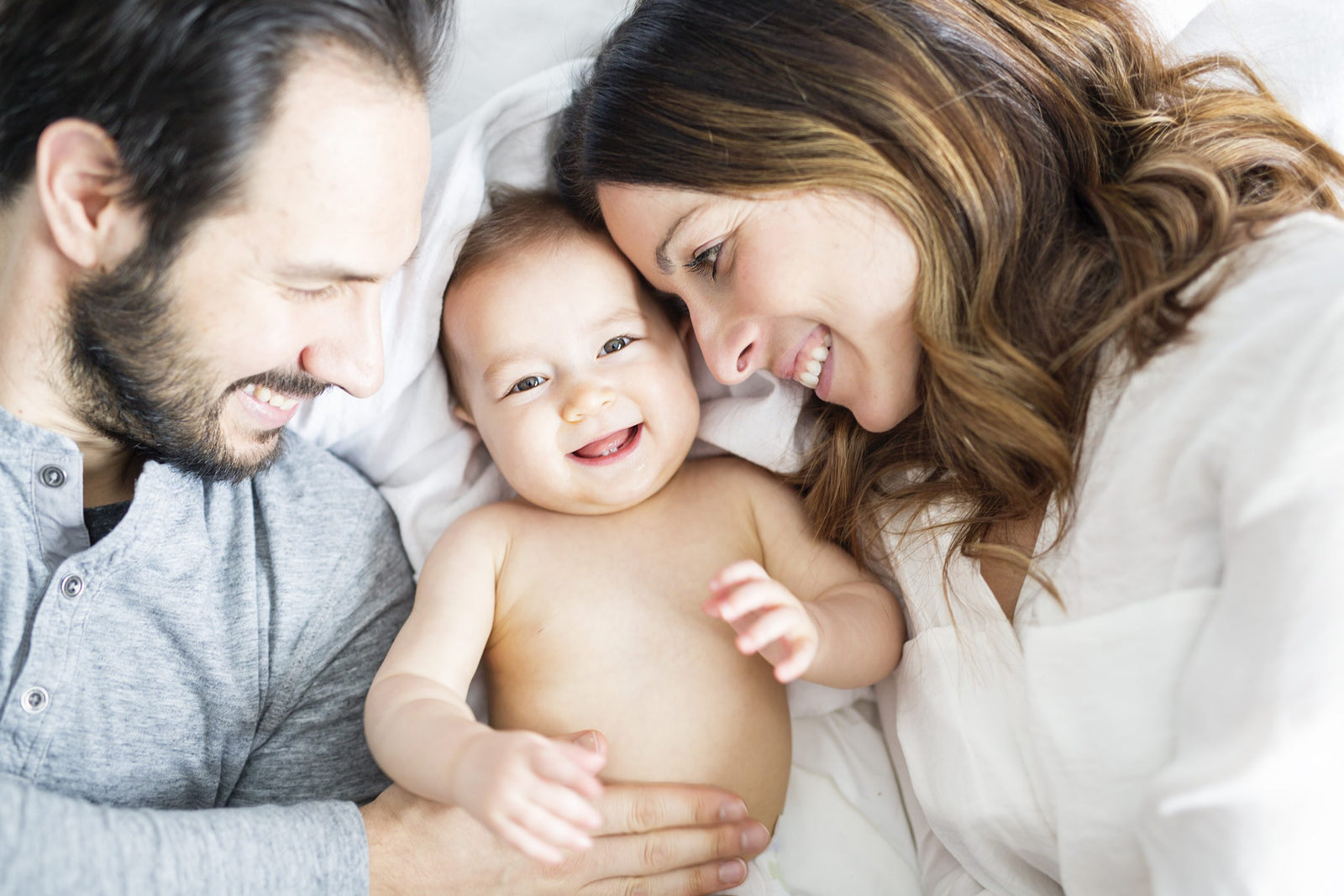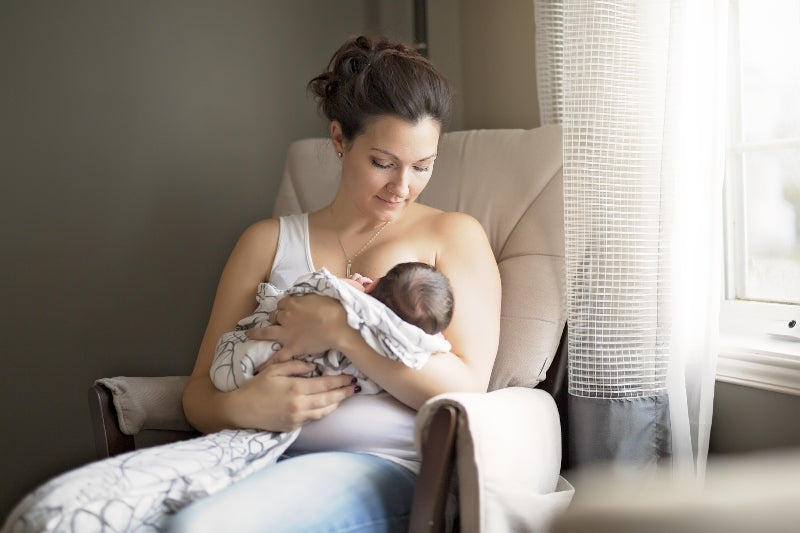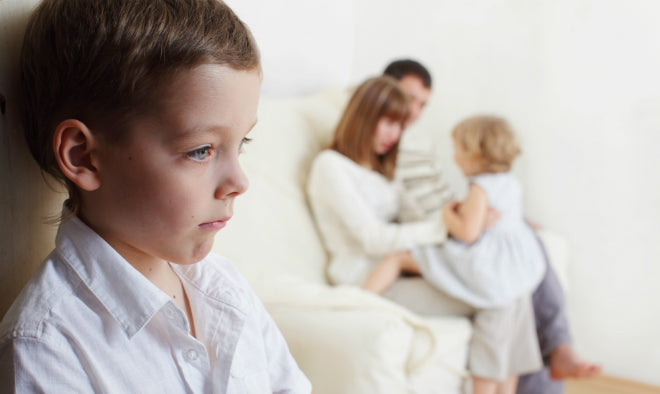" How to help your pet through the cold season "
As soon as summer says goodbye, the flu season begins. Even adults quickly run the risk of catching it. As the immune system of babies and small children is not yet as well developed, it is even more common for them to catch a cold. Colds, coughs and fever are the consequences. When this happens, however, there are a few small measures you can take to help your child.
A toddler always seems to have a new infection! Why is that?
To a certain extent, infections are part of a baby's healthy development. Even if this statement seems contradictory. After birth, the infant is protected by the so-called nest protection. It receives these first defenses from its mother. Over the next few weeks, however, the body is dependent on building up and, above all, strengthening the immune system itself. However, this is only possible when the first infections occur and the baby's body is directly confronted with viruses. This is a lengthy process, but one that improves with each new infection. A cold and cough can therefore also be beneficial.

Babies still have a weak immune system. This is why they are affected by infections more quickly than adults
First symptoms - How to recognize that your child has a cold
When your baby catches a cold, the first signs are relatively easy to spot. Often the little ones are quite whiny at first and seem very irritable. Experienced parents will then already know that their little sunshine is coming down with something. Another indication may be a loss of appetite. At the latest when the nose is blocked, a cold and cough appear and the body temperature rises, the case is clear. If in doubt, you should definitely visit your pediatrician.

A visit to the pediatrician is not a mistake with a cold
Children like it warm - but the air should not be dry
A dry indoor climate is a real promoter of viruses in the air and therefore of colds. This is often the case during the heating period. Of course, you want your little one to be warm and cozy, but you should make sure that you heat the room in a targeted manner and always ensure air exchange. Ventilate the nursery twice a day for 10 minutes each time. However, move your baby to another room during the airing. If you want to increase the humidity a little, you can, for example, moisten a terry towel and hang it up in the room. However, it is essential that you do not use essential oils, which are not suitable for the sensitive mucous membranes of small children and babies.

Heating pad and cuddly blanket - your child's best friends when they have a cold
To keep your little one nice and warm without drying out the air in the room, we recommend pampering them with a fluffy heating pad. These are available in the form of grape seed cushions, for example. The home textiles are simply heated in the oven or microwave. Just make sure that the cushions do not get too hot. As a cute alternative, there are also warming stuffed animals in the shape of cute sheep, penguins, rabbits and many other animals.


Make the sleeping experience perfect with a matching baby blanket made of soft fleece. This way, your little sunshine will get a good night's sleep despite having a cold.
Stuffy nose - this helps with a cold
If your baby has a blocked nose, this is extremely unpleasant for your little one. Breathing through the mouth is not yet properly developed and the swollen mucous membranes in the nose make breathing extremely difficult. A few tips can provide relief from a cold:
Steam bath works for colds
Try a wonderful steam bath. To do this, leave hot water running in the shower cubicle for a while and then turn it off again. Then sit in the shower with your child and let them breathe in the steam. In addition, dress your child in a baby poncho to keep them warm.

You can also set up a bowl of hot water. Add sea salt and fresh chamomile to this water. The vapors will loosen the mucus and decongest the nose.
Nasal aspirator as a practical helper
You can also use a nasal aspirator to clear your baby's tiny nose. If this is not to hand at the moment, cellulose handkerchiefs are a very good alternative to keep the nasal airways clear.
Home remedies for fever and sore throat
If you have a fever associated with a cold, you can lower the temperature with a gentle calf compress. Simply place a damp cloth around your calves and a dry one over it. Make sure that the temperature of the cloths is not significantly below 10 degrees below the current body temperature. Antipyretics must be administered if the temperature continues to rise. Seek advice from a pediatrician.
A sore throat is also often associated with a baby cold. Throat compresses have proven effective here.
Dip a cloth in water that you have previously enriched with a little fresh lemon juice. Use a muslin cloth for this. Wring it out very well and then place the cloth around the child's neck. Place another dry cloth over it. The initial coolness will quickly give way to a pleasant warmth and provide mild relief from a cold.

Earache in babies - if in doubt, consult a doctor
In an infant, the canals of the sinuses, ear canals and throat are still very close together. It is therefore not uncommon for a flu-like infection to spread to the ear during a cold. Caution is advised here. If the ears are reddened or if your offspring pulls on them, you should have them examined by a pediatrician to avoid a middle ear infection. If this is protracted and not treated properly, it can later lead to hearing damage in the child.
When should a pediatrician be consulted for a cold?
Of course, not every cold or cough requires a visit to the doctor. However, if your baby is younger than three months and shows symptoms of an infection and fever, a visit to the pediatrician is recommended immediately. If your child has a cold and the body temperature rises above 39°C with a fever, a doctor should also be consulted. Of course, this recommendation always applies if you as parents are not sure. If in doubt, young parents in particular should seek specialist medical advice without any ifs and buts.










